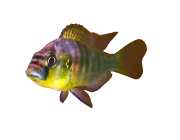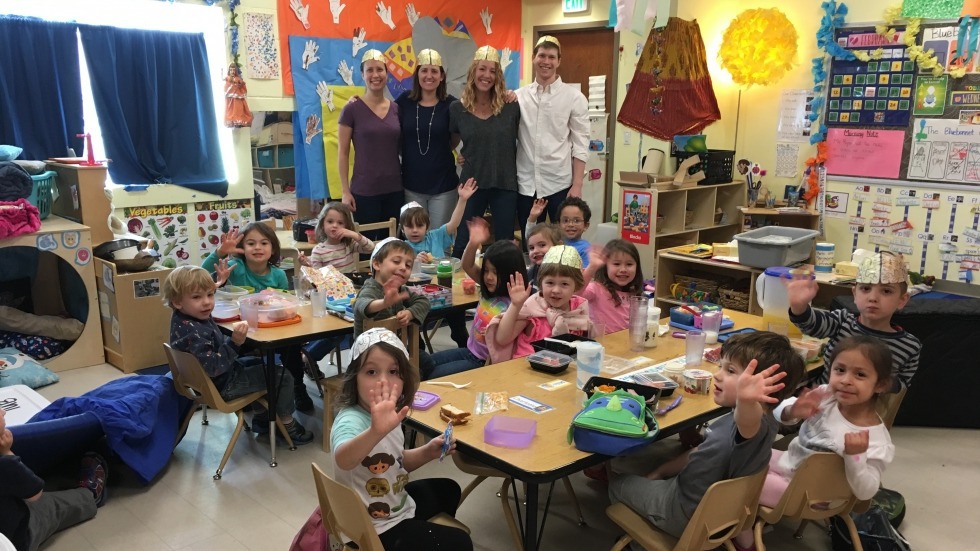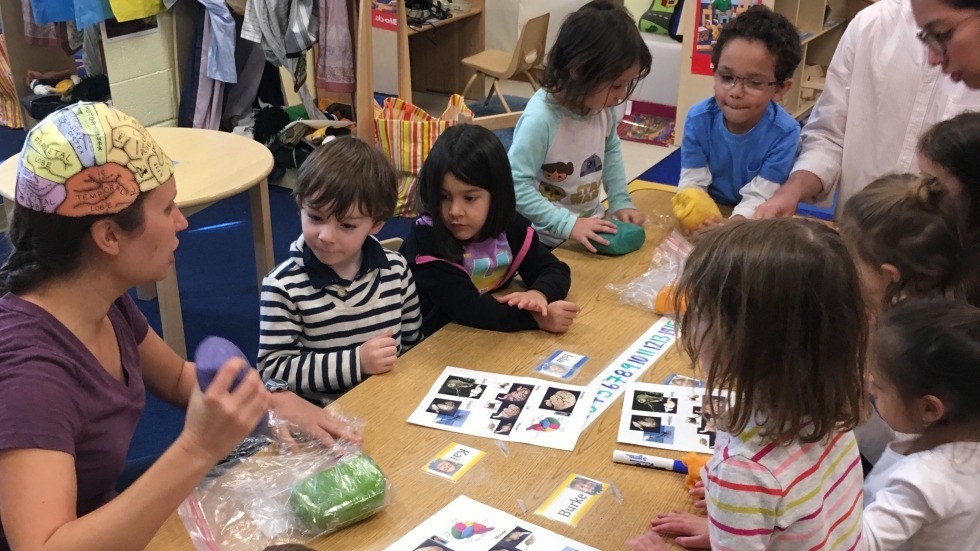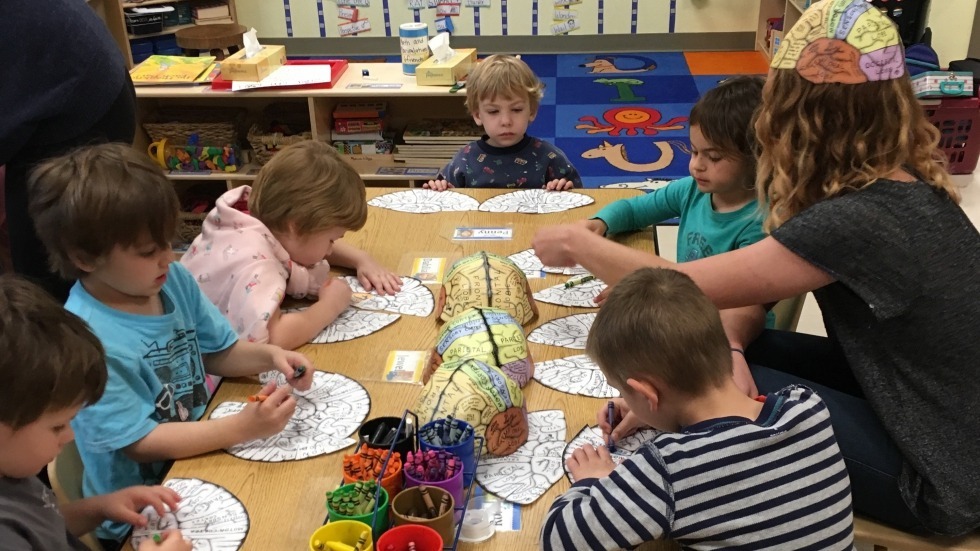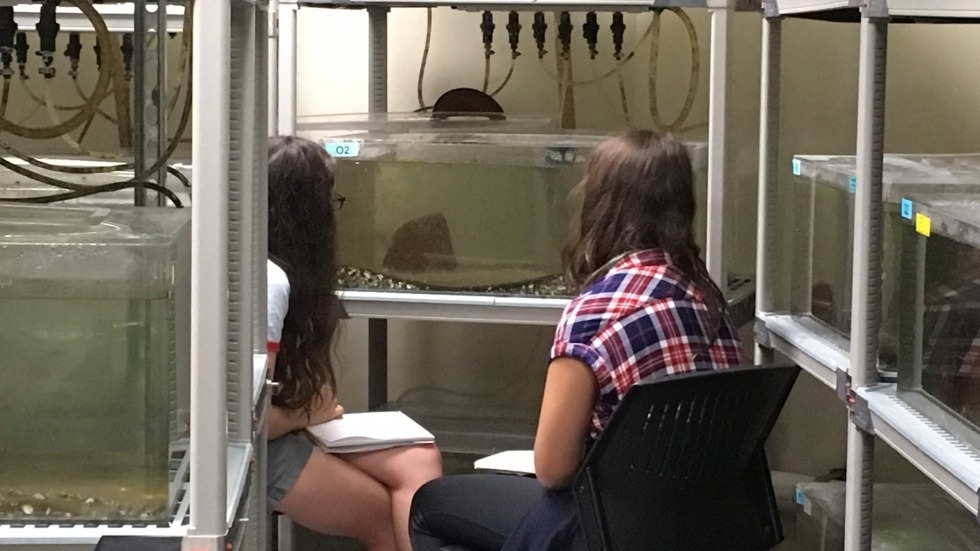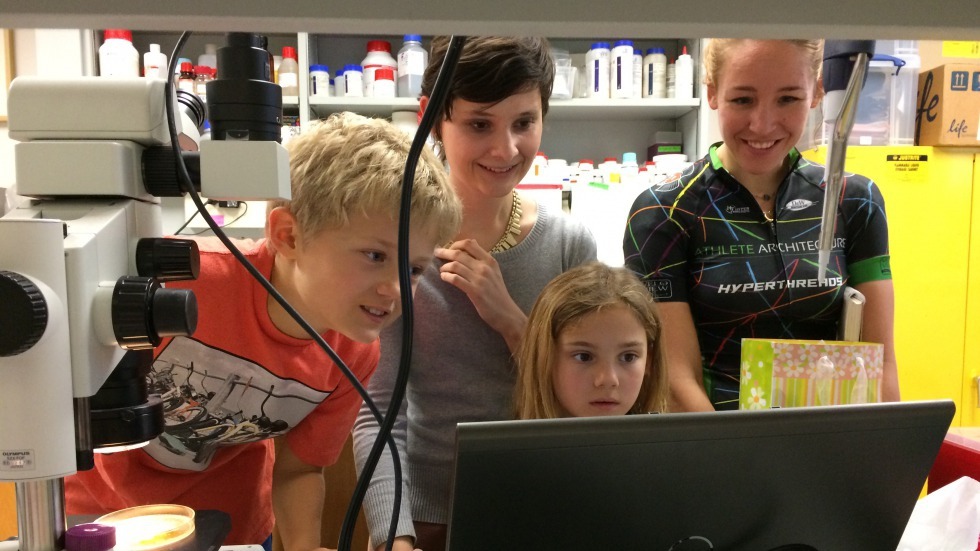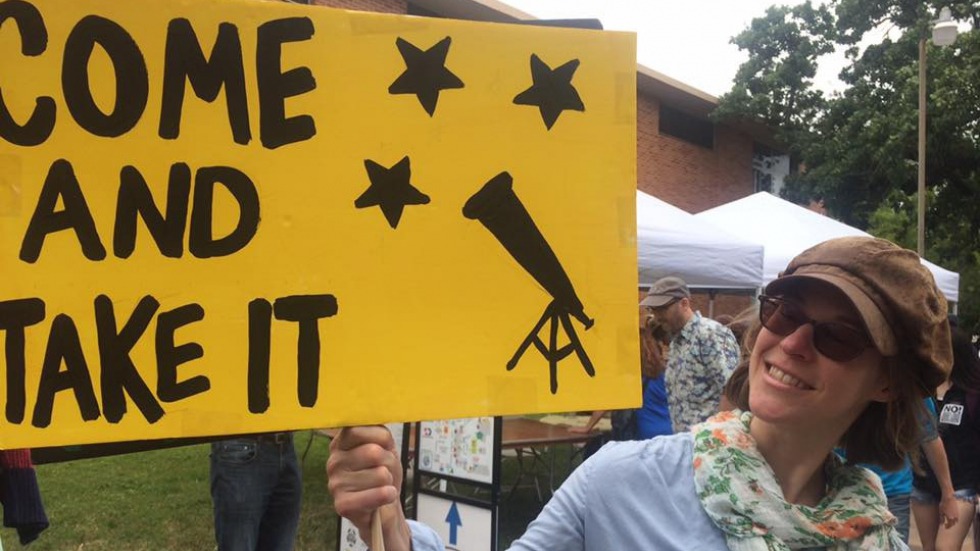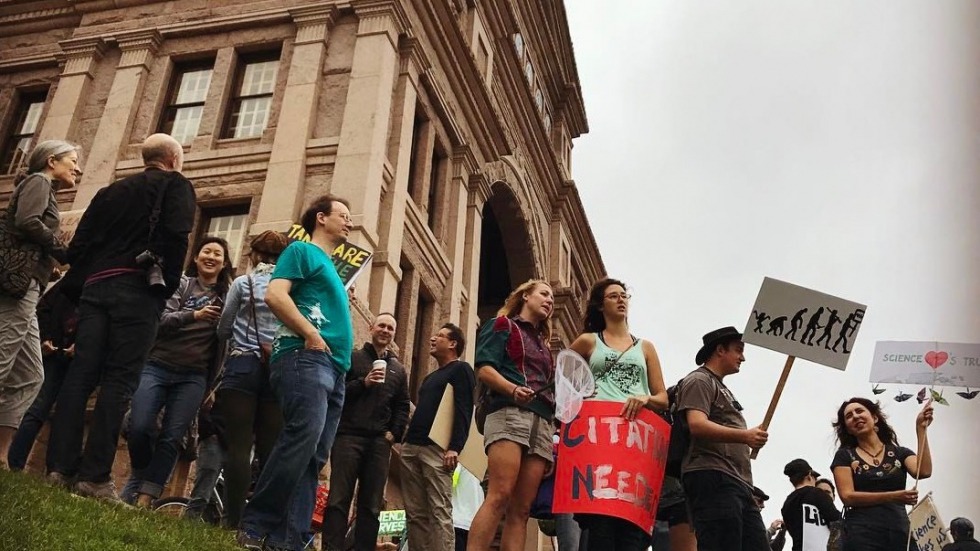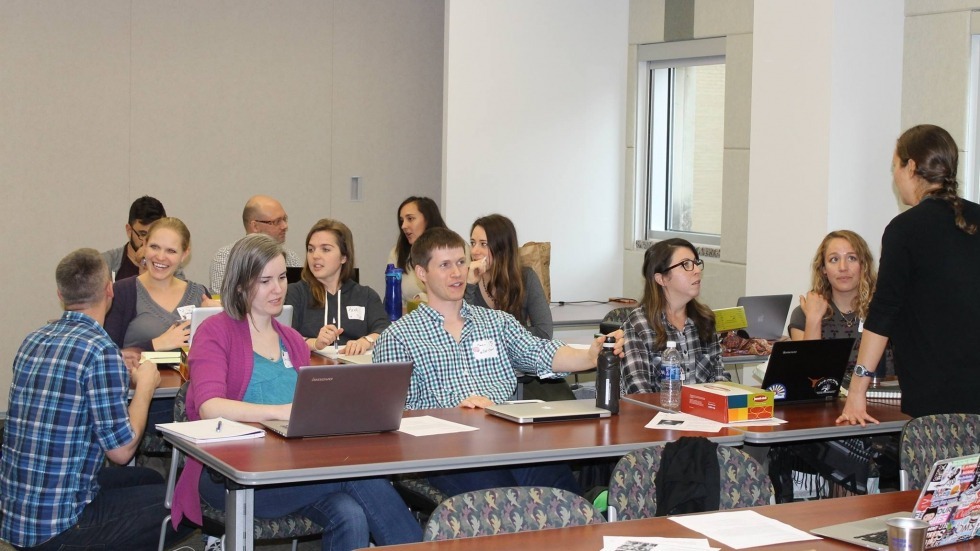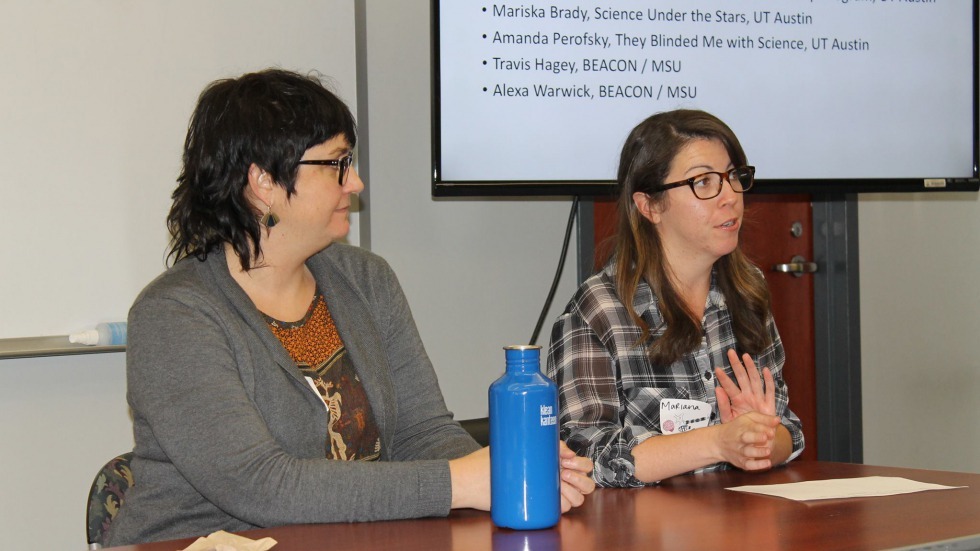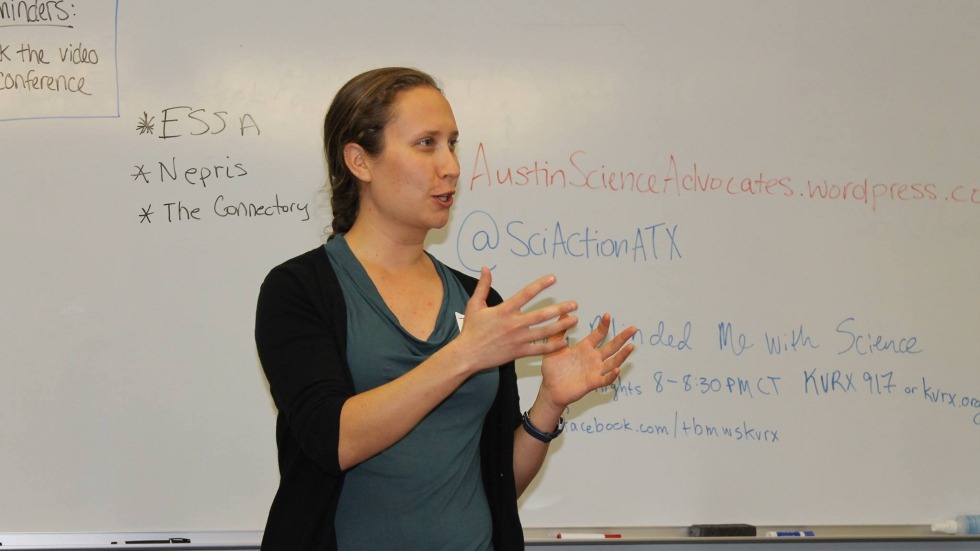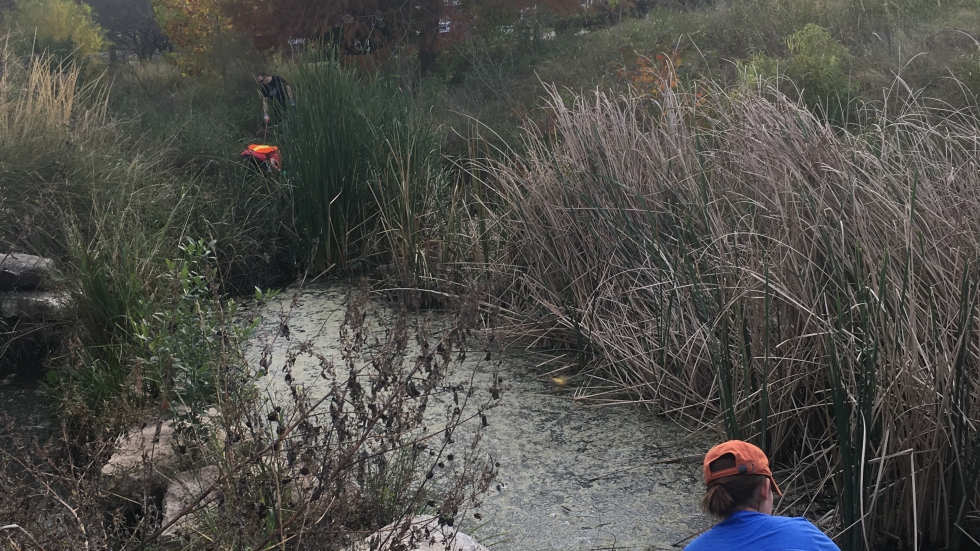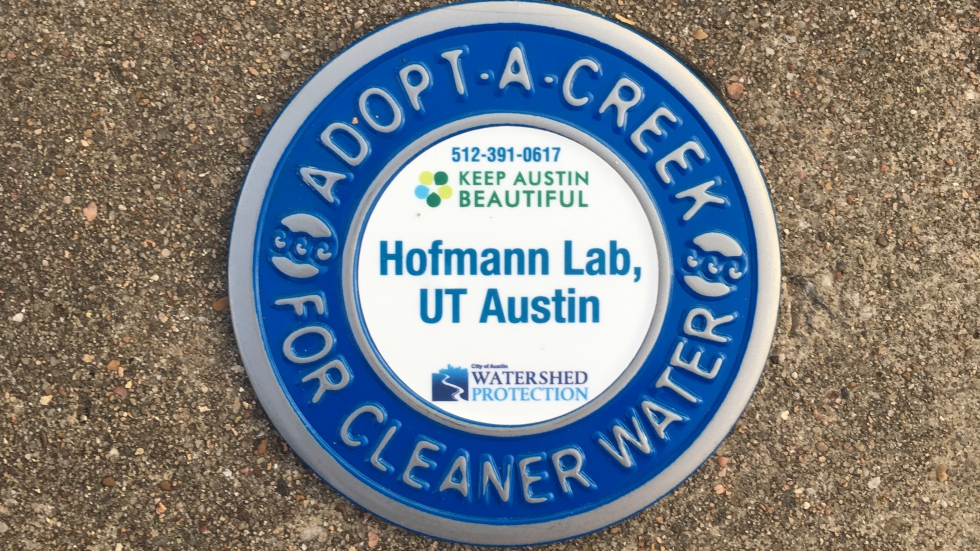Public Engagement
The Hofmann Lab is dedicated to bringing our science to the public! Current lab members engage the public in a wide variety of ways. This includes:
face-to-face interactions
public interviews
science media for the public
facilitating research experiences for high school and undergraduate students
engaging with public policy and policy makers
organizing engagement training and events for STEM researchers
Science is a fundamental part of our society on multiple levels. By engaging face-to-face, we strive to show how our research intersects with topics important to the public. We have shared our science with adults and families through public talks at Science Under the Stars, Nerd Nite, and Thinkery21 events, as well as interviews with They Blinded me with Science, the Nature and Nurture Podcast, and the Omega Tau Podcast. Through these efforts, we hope to increase support for science and promote science as a way to make the world a better place. We also aim to use our enthusiasm to promote science as a career and diversify the STEM workforce with younger generations. We engage directly with K-12 students by giving lab tours to visiting school groups, hosting middle school students as a part of Shadow A Scientist, visiting classrooms to teach about the brain, organizing summer Science Club, and mentoring students through the Crockett High School Internship Program (see below). We also organize workshops to train STEM researchers in public engagement best practices (see below).
Currently, influential voices in both government and media are providing opposition to the advancement of science, increasing the necessity of public engagement. We have acted to support policy changes and science education by testifying at State Board of Education hearings, participating in Austin Science Advocates, and writing about how current methods of sharing information can amplify the spread of false scientific claims.
Public Engagement Programs spearheaded by Hofmann Lab members:
<embed>High School Research Internship Program (in partnership with Crockett High School)
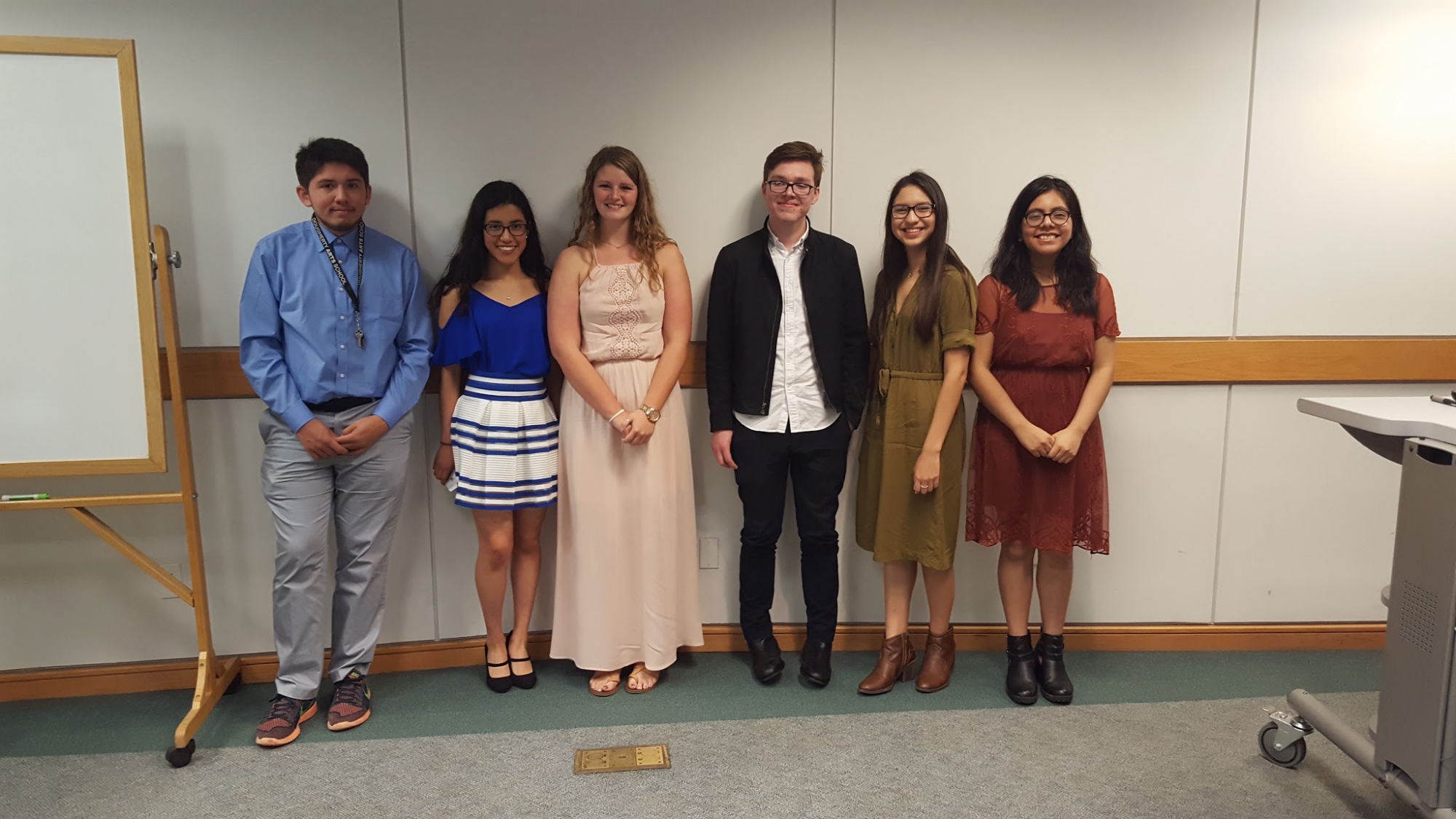
Our lab has been very active in enhancing science education for students from Crockett High School by organizing a year-long internship program that allows students to receive course credit, extend their knowledge, and develop skills needed to conduct long-term, original research projects. Student interns are paired with STEM labs at UT based on their research interests, where they work for two half-days a week throughout the entire academic year. Students are trained and supervised by graduate students and postdoctoral fellows while working on a research project. They gain invaluable experience conducting experiments, analyzing data, and discussing scientific literature. At the end of each semester, students present their work to an audience of their peers and scientists from UT.
Crockett is an urban public school in the Austin Independent School District with a diverse student body (60% Hispanic, 25% Anglo, 15% African-American). Most of Crockett’s students receive free or reduced lunch, over half are considered economically disadvantaged, and the vast majority will be first generation college students. Our partnership with Crockett provides some of its most promising students access to instruction and facilities that would not otherwise be available. Now in its 8th year, 40+ students have successfully completed the program, and it has become a capstone course for Crockett seniors interested in pursuing careers in STEM fields. Three of the students have co-authored peer-reviewed publications! View our website (hsrip.wordpress.com) or contact Isaac Miller-Crews for more information.
An Evidence-Based Approach to Public Engagement Training
![]() We have organized a series of workshops that aim to recruit, motivate, and train graduate students and postdoctoral fellows, and then pair them with engagement opportunities. Disseminating scientific knowledge is a fundamental societal responsibility for every academic scientist; however, the best practices for public engagement are rarely taught. Furthermore, public engagement builds skills that are fundamental to professional success, including communication, teaching, and leadership skills. Public engagement can also enrich scientists’ understanding of their own research and field of interest. Our long-term goal is to integrate public engagement skills and experience into the standard graduate and postdoctoral training curriculum. This work was supported by the BEACON Center for the Study of Evolution in Action. Read our BEACON blog posts to learn more about public engagement, our workshops, making your science accessible, and the diversity of ways to engage the public. Contact Tessa Solomon-Lane for more information.
We have organized a series of workshops that aim to recruit, motivate, and train graduate students and postdoctoral fellows, and then pair them with engagement opportunities. Disseminating scientific knowledge is a fundamental societal responsibility for every academic scientist; however, the best practices for public engagement are rarely taught. Furthermore, public engagement builds skills that are fundamental to professional success, including communication, teaching, and leadership skills. Public engagement can also enrich scientists’ understanding of their own research and field of interest. Our long-term goal is to integrate public engagement skills and experience into the standard graduate and postdoctoral training curriculum. This work was supported by the BEACON Center for the Study of Evolution in Action. Read our BEACON blog posts to learn more about public engagement, our workshops, making your science accessible, and the diversity of ways to engage the public. Contact Tessa Solomon-Lane for more information.
Adopt-a-Creek
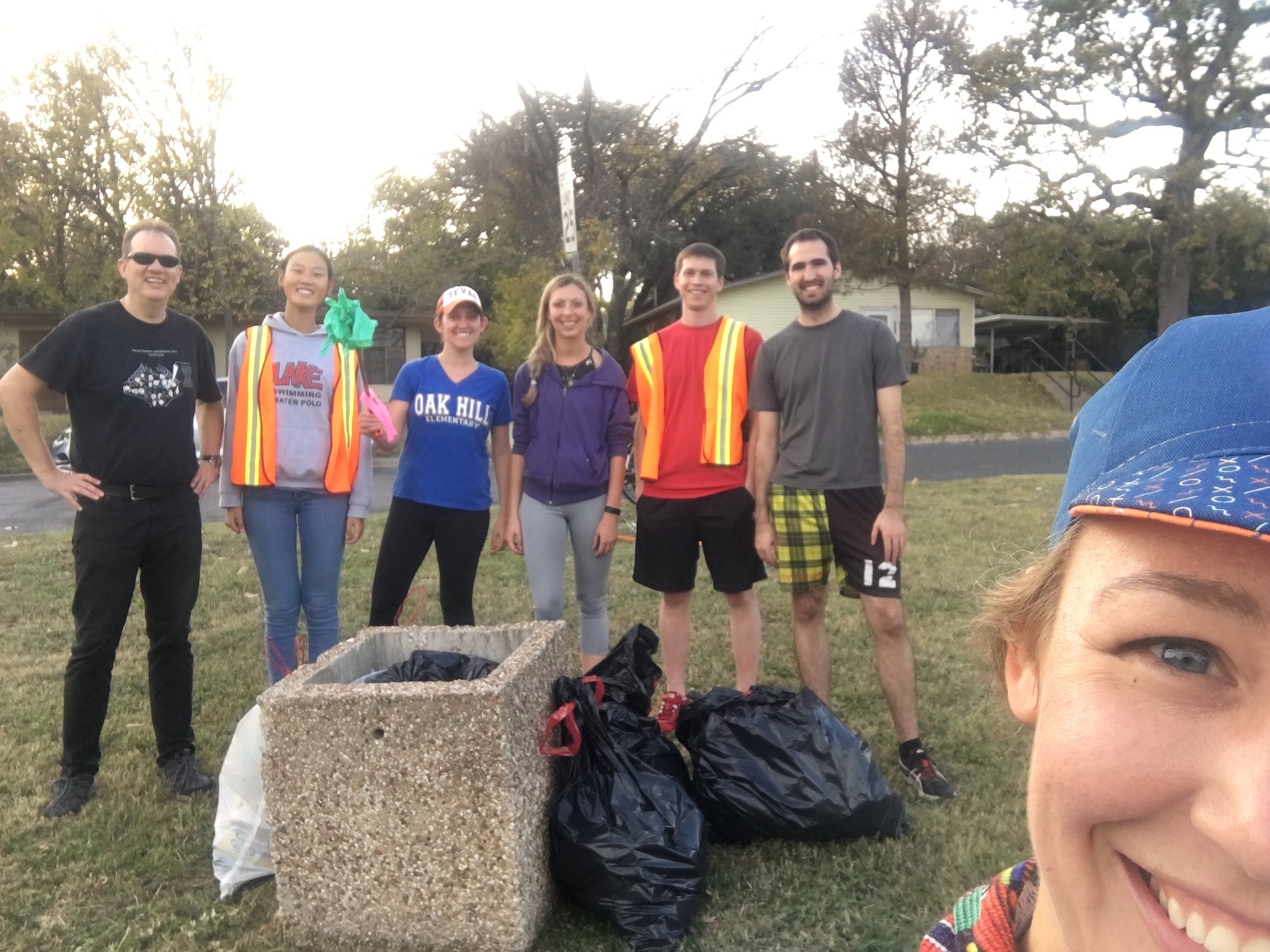
In our commitment to Keep Austin Beautiful, we have adopted a 1/4 mile segment of creek along the JJ Seabrook Greenbelt for the following two years. Each year we conduct at least four clean ups and complete restoration projects to reduce the amount of trash entering the creek, improve water quality, and restore habitats along the waterway. Contact Caitlin Friesen for more information.
